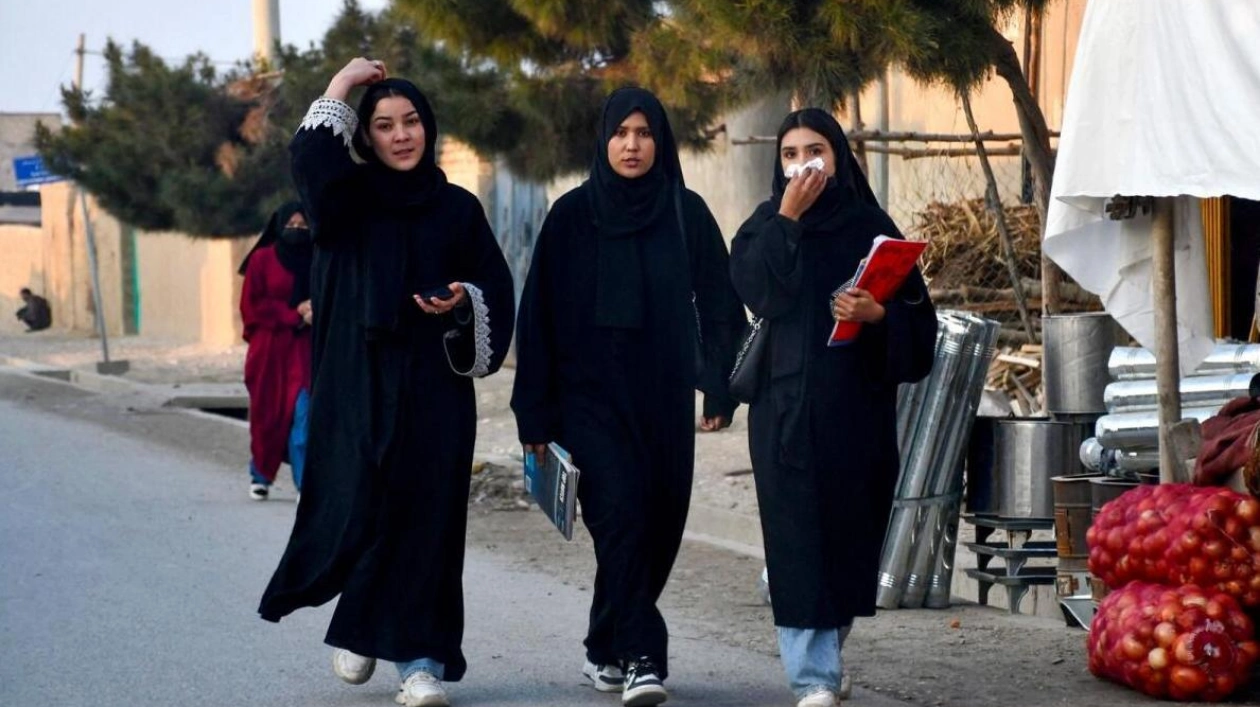Afghan women stroll down a street on the outskirts of Mazar-i-Sharif on December 4, 2024. — AFP
The UN mission in Afghanistan on Wednesday called on the Taliban government to reconsider a reported plan to prohibit women from attending medical training institutes, marking another step in restricting women's education. A health ministry source and managers from private medical institutes, which provide training in areas such as midwifery and nursing, informed AFP on Tuesday that the public health ministry had received a directive from the Taliban supreme leader to suspend women's participation. Although the Taliban government has not officially confirmed the ban, institute employees stated they have been given 10 days to conduct final exams before women are barred from attending.
The United Nations Assistance Mission in Afghanistan (UNAMA) expressed 'extreme concern' over these reports and urged the Taliban government to 'reconsider implementing' the rule. 'If enforced, the reported directive will impose further restrictions on women and girls' rights to education and access to healthcare,' a statement read. 'Ultimately, it will negatively impact Afghanistan's healthcare system and the country's development.' A senior health ministry source told AFP that the ban would exacerbate an already struggling health sector. 'We are already lacking professional medical and para-medical staff, and this will result in further shortages,' the source said.
This ban would be the latest in a series of restrictions on women's education since the Taliban took control in 2021 and enforced a strict interpretation of Islamic law. Women and girls have been barred from secondary school and university, restrictions the UN has labeled 'gender apartheid'. Women students have since turned to health institutes, which offer courses in over a dozen health-related subjects, with approximately 35,000 enrolled, according to health ministry sources. The European Union on Wednesday also urged the Taliban to 'reverse this discriminatory policy', describing it as 'an unjustifiable attack on women's access to education'. Amnesty International warned that a ban would 'have devastating consequences for the health of women in a country with one of the highest maternal mortality rates in the world'. The reports elicited widespread criticism, including from Afghan cricket superstar Rashid Khan. 'Providing education to all is not just a societal responsibility but a moral obligation deeply rooted in our faith and values,' Khan wrote in a Facebook post.
Source link: https://www.khaleejtimes.com






